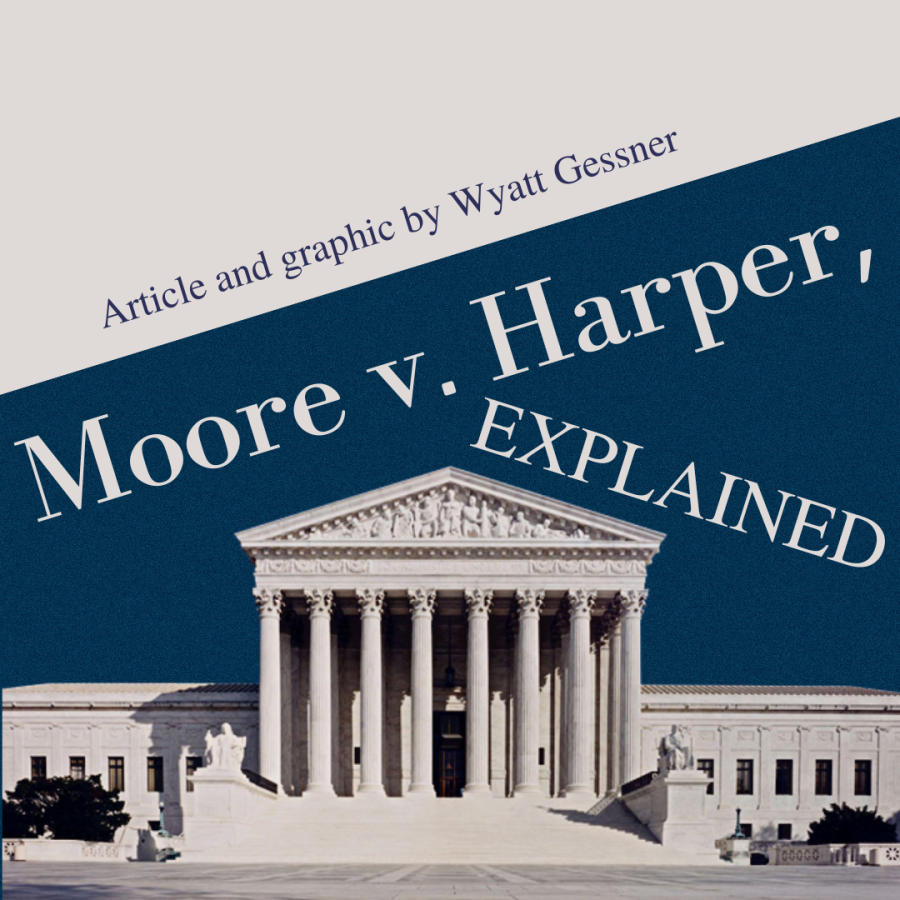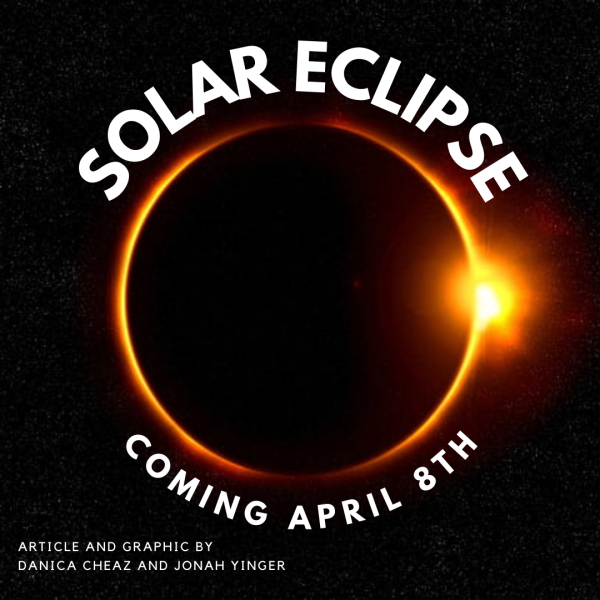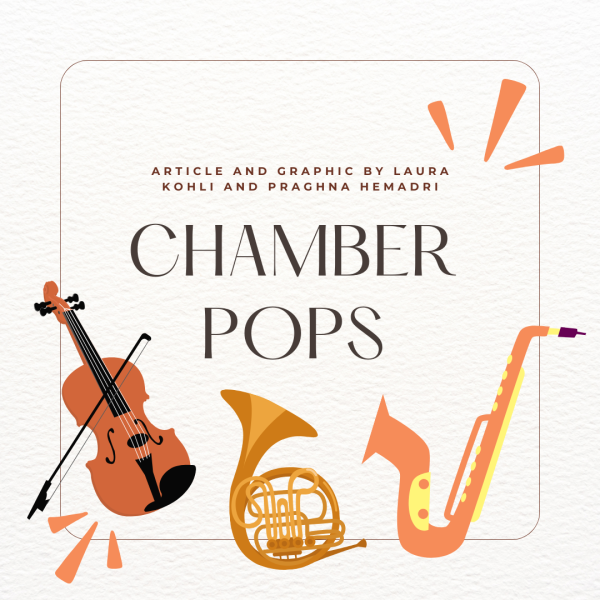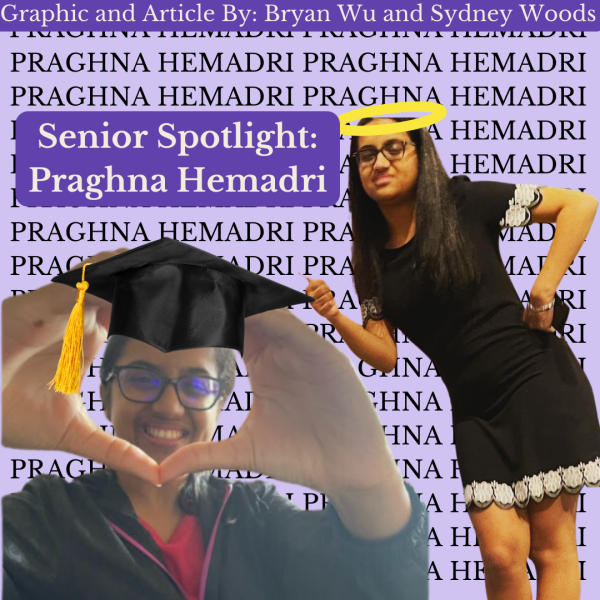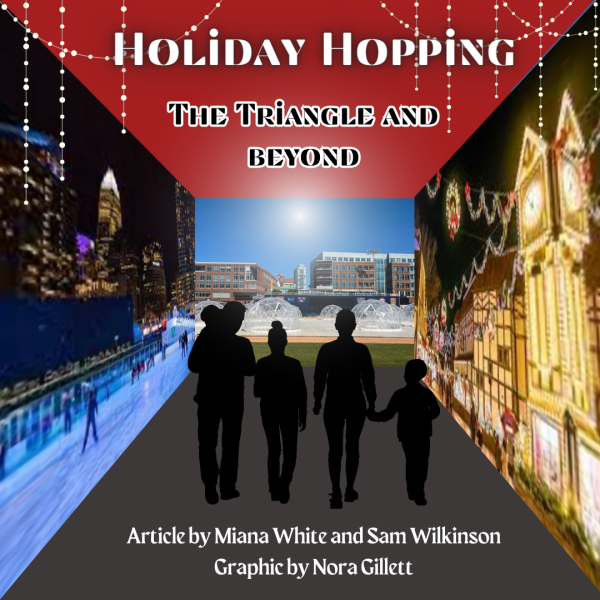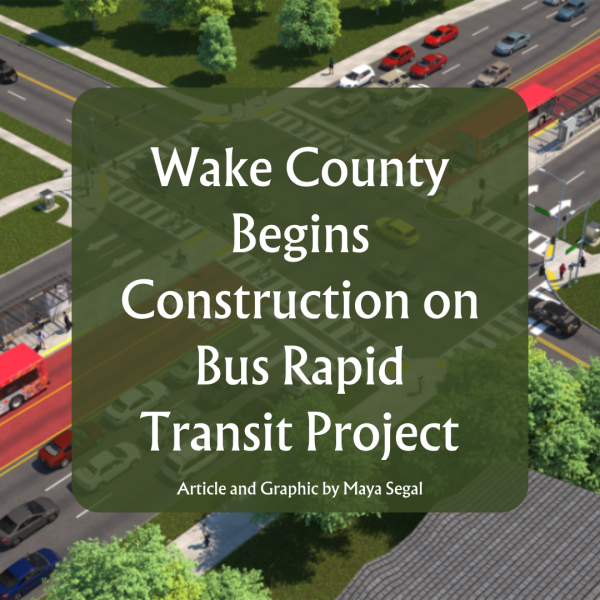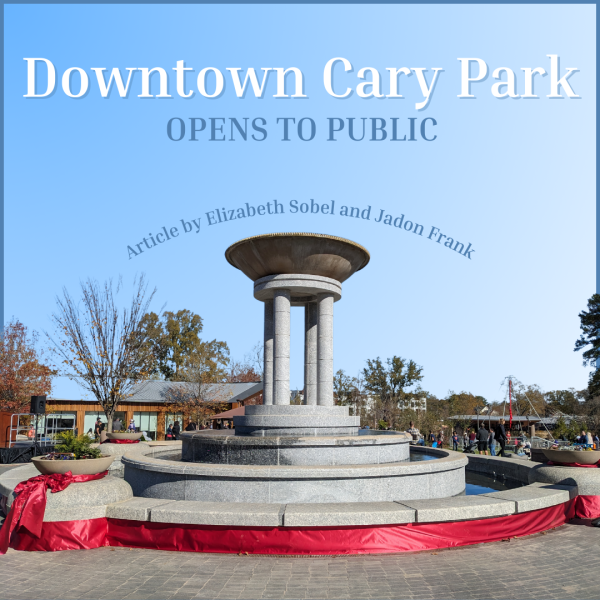Moore v. Harper, Explained
The 2022 midterm elections are now one month behind us, with many Enloe seniors having cast their vote for the first time. However, thanks to a North Carolina lawsuit currently set to be heard before the Supreme Court, voting may look very different next election. The case, Moore v. Harper, concerns a conservative legal theory that has grown to prominence in recent years. The theory is based on an interpretation of Article 1 of the US Constitution, which would give state legislatures unrestricted control over how federal elections are run within the state, with almost no oversight from the other two state branches. Conservatives are calling it a purer interpretation of the constitution that will lead to freer elections. Progressives are calling it the death of democracy.
The case stems from an issue North Carolina’s legislature has already come under fire for. In 2016, the Republican majority state legislature was forced to redraw their original redistricting maps after they gerrymandered black representatives and residents into unreasonable districts, violating the Voting Rights Act. Yet the new map still didn’t satisfy Democrats, as it was now unfavorably drawn along partisan lines rather than racial lines. They again took the issue to the Supreme Court, which asserted that they had no authority to enforce partisan issues and bounced it down the state courts. Using the court’s power to ensure “free” and “fair” elections as allowed in the state constitution, a panel of three judges barred the map from use in 2019. Despite this, following the 2020 census, the new redistricting plan proposed in 2021 had an even more extreme partisan gerrymander. In an evenly divided 50/50 vote, 10 of the 14 seats would have gone to Republicans. Statistically, it favored Republicans more than 99.9999% of possible maps. The North Carolina Supreme Court struck it down, as well as the second proposal put forward by Republicans. When the courts ordered a special master to draw up a new map, State Speaker of the House Timothy Moore sued, and thus Moore v. Harper began.
The idea behind the case is known as the Independent State Legislature theory (ISL). ISL is based on the Elections Clause of the Constitution, which says the power of running elections “shall be prescribed in each State by the Legislature thereof.” Traditionally, this is interpreted “as the legislative process used in [a] state, determined by that state’s own constitution and laws.” This was confirmed recently by the Supreme Court in 2015, in Arizona State Legislature v. Arizona Independent Redistricting Committee. ISL was first used in the landmark case Bush v. Gore, which won George W. Bush the 2000 election after much dispute over results in Florida. It was most recently circulated by Donald Trump and some fellow Republicans in an attempt to dispute the 2020 election results. Among the disgruntled was Virginia “Ginni” Thomas, wife of Justice Clarence Thomas. He, Samuel Alito, Neil Gorsuch, and Brett Kavanaugh have all voiced support for the theory; Kavanaugh was on Bush’s legal team during Bush v. Gore. However, Chief Justice John Roberts did say state courts could oversee redistricting while writing for the five conservative justices in 2019. But the Court’s now 6-3 supermajority has already expressed a willingness to bypass precedent. Earlier this year, it overturned Roe v. Wade despite several conservative justices referring to it as a “super precedent.”
If the state Supreme Court’s decision is overturned, it would likely mean broad changes to elections in North Carolina and other states in support of ISL. Enloe students and their fellow North Carolinians will need to keep a close eye on what bills are passed should ISL be implemented. We could see the return of the controversial Voter ID bill that is currently trapped in a web of litigation and legal debate, partially stemming from the original district map rejection.
Dr. Hoffman, Enloe’s voter registration coordinator, is available to any students who experience trouble signing up to vote or have any questions about how to access polling sites. Despite state laws requiring a voter registration coordinator, Dr. Hoffman says most coordinators are underutilized if even present in schools. If a wave of students are unable to access the polls, they may find that schools don’t have enough resources.
“It’s simply too early to tell what’s going to happen,” says Dr. Hoffman.
Outside of Enloe, numerous volunteer groups across North Carolina have mobilized to boost registration numbers and assist voters who may have trouble accessing the polls, such as students, non-English speakers, and senior citizens. If you are interested in helping others register to vote or have questions about doing so yourself, talk to Dr. Hoffman or visit one of the independent registration volunteer groups below.
You Can Vote NC: youcanvote.org
Rock the Vote: rockthevote.org
Works Cited
Totenburg, Nina. “Supreme Court to Take on Controversial Election-Law Case.” NPR, 30 June 2022, https://www.npr.org/2022/06/30/1106866830/supreme-court-to-take-on-controversial-election-law-case. Accessed 1 Nov. 2022.
Sweren-Becker, Eliza, and Ethan Herenstein. “Moore v. Harper, Explained.” Brennan Center, 26 Oct. 2022, https://www.brennancenter.org/our-work/research-reports/moore-v-harper-explained. Accessed 2 Nov. 2022.
“North Carolina’s Extreme Gerrymandering Could Save the House Republican Majority.” Vox, 8 May 2018, https://www.vox.com/policy-and-politics/2018/5/8/17271766/north-carolina-gerrymandering-2018-midterms-partisan-redistricting. Accessed 2 Nov. 2022.
“Arizona State Legislature v. Arizona Independent Redistricting Commission.” Wikipedia, 16 Oct. 2022, https://en.wikipedia.org/wiki/Arizona_State_Legislature_v._Arizona_Independent_Redistricting_Commission. Accessed 2 Nov. 2022.
Patel, Anjali. “‘Impossible to Overstate How Important This Could Be’: SCOTUS to Hear NC Voting Maps Case.” FOX28 Savannah, 6 July 2022, https://www.google.com/amp/s/fox28media.com/amp/news/local/scotus-north-carolina-voting-maps-case-supreme-court-moore-v-harper-house-speaker-tim-moore. Accessed 2 Nov. 2022.
“Moore v. Harper.” Wikipedia, 8 Nov. 2022, https://en.wikipedia.org/wiki/Moore_v._Harper. Accessed 2 Nov. 2022.
Your donation will support the student journalists of Enloe Magnet High School, allowing us to cover our annual website costs. We are extremely grateful for any contribution, big or small!

(He/him)
Wyatt is a senior who's super excited to return to the Eagle's Eye as Editor in Chief! He's a member of the Enloe Swim Team and will happily...


